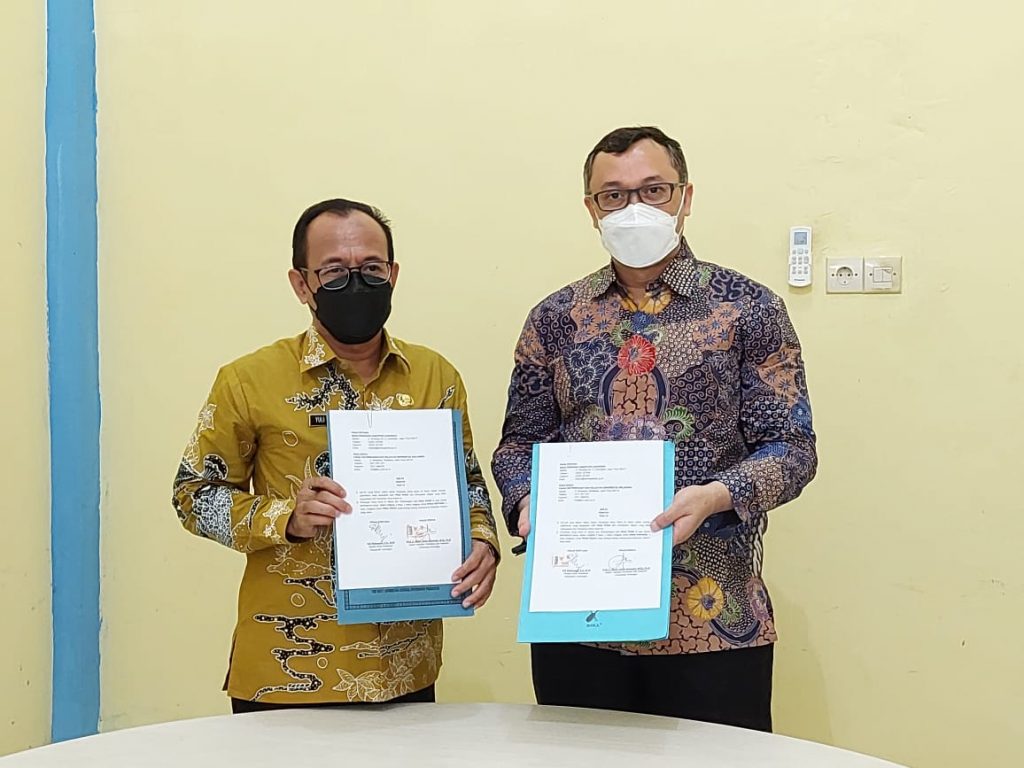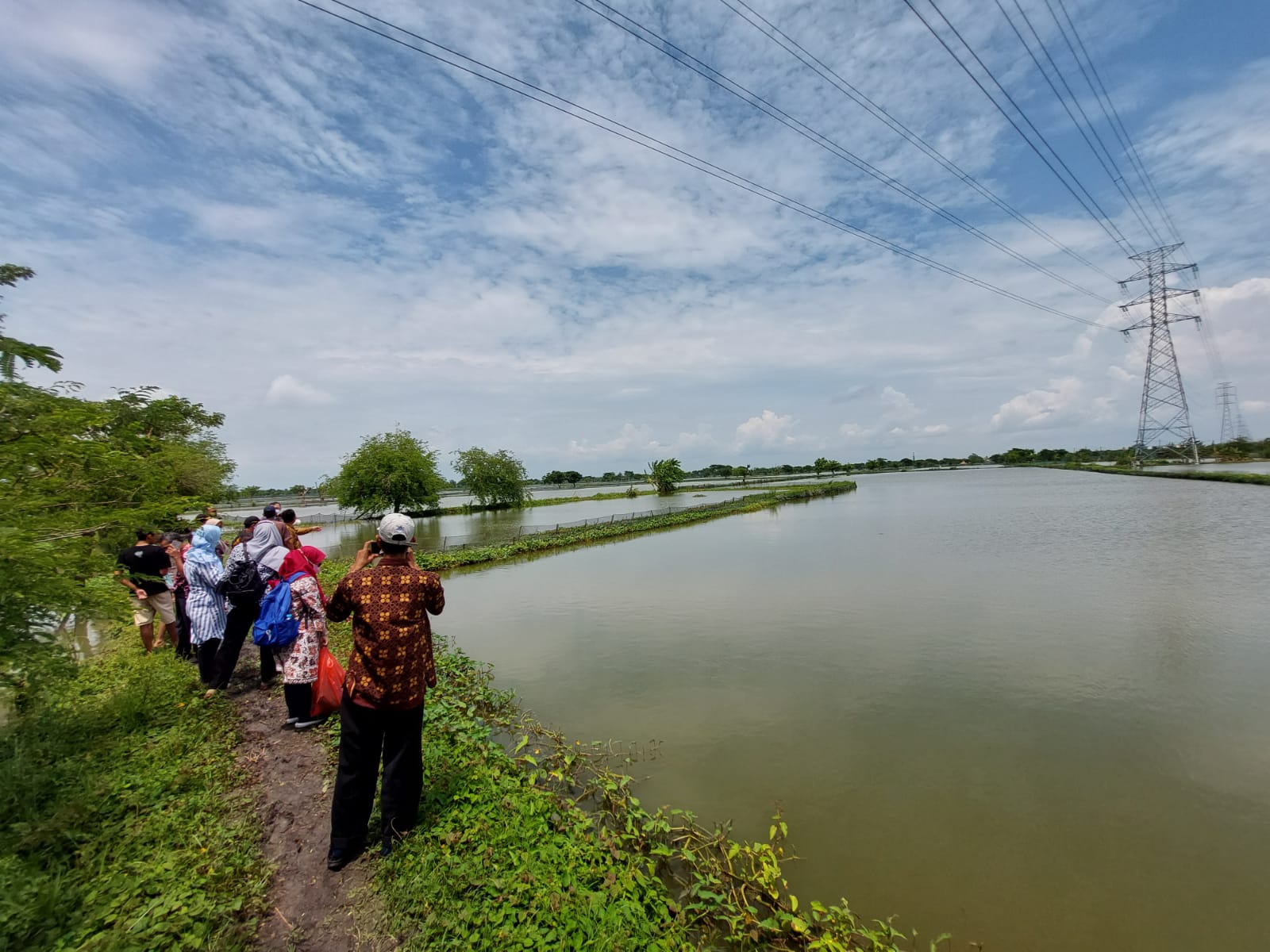UNAIR NEWS– UNAIR Faculty of Fisheries and Marine Sciences has established a collaboration agreement with the Lamongan District Fisheries Office. On Thursday, January 20, 2022, the agreement was marked by a signing session by both institutions. Other than as a dedication to society, the cooperation can also provide factual data in the field regarding the land or the waters’ mineral condition. The cooperation plan involving the two institutions will be carried out until 2025.
Dean of Faculty of Fisheries and Marine Sciences (FPK) Prof. Dr. Mohammad Amin Alamsjah, Ir., M.Si., Ph.D., stated that on October 26, 2021, Lamongan Regency Fisheries Office had visited FPK UNAIR. The visit was made to consult regarding problems on inorganic fertilizer supply for polyculture farming.
Intensive use of inorganic fertilizer for rice-fish system culture had led to limited availability of fertilizer, while the distribution for subsidized inorganic fertilizer is only given to the agriculture sector (fields and rice fields). Therefore, it is necessary to make an effort to find alternatives that give the opportunity for cultivators to continue production and do not rely on inorganic fertilizers such as urea and TSP.
“Cultivation there (Lamongan) commonly used inorganic fertilizer (urea and TSP) with high doses (
Prof. Amin stated that FPK UNAIR’s role is to propose solutions regarding those problems. As planned, in February, the faculty will send a team, led by Dr. Laksmi Sulmartiwi, S.Pi., MP, which consists of lecturers, students from bachelor’s and master’s degrees, and the local youth. The target is that by the end of the year, they could have a land mapping or identification regarding the content of nutrients, bacteria, and opportunities for the development of probiotics and SOPs related to rice-fish system cultivation.
“We give solutions by doing comprehensive identifications to get accurate data. Then we will do an engineering technology (alternative) to reduce the use of inorganic fertilizers. Therefore, we will try using materials available there; perhaps the hay can be processed by fermentation with the addition of probiotics from local bacteria,” he stated.
“I hope later this year we can provide SOP regarding fish cultivation at rice fields using the right inorganic fertilizer. Then we are striving to develop other alternatives to accelerate the decomposition of organic fertilizers [so that they] can be easily absorbed. If everything runs well, there will be a demonstration plot (Demplot) to give the right example of inorganic fertilizer’s use. Hopefully, it can reduce the use of inorganic fertilizers,” he added.

Regarding the summary of the agreement, Dr. Eng. Sapto Andriyono, S.Pi., MT. as Vice Dean III explained that the faculty has directed them to activities based on Tri Dharma (education, research, and community service). However, for this year’s implementation, the activity proposed by the office is assistance on healthy fisheries programs.
“In principle, we prepare human resourcess for that research until [we] can provide recommendations for good fisheries activities there. So, most importantly, we hope that it will be environmentally friendly, with no usage of active chemicals. Use more organic fertilizers and probiotics,” he stated.
Author: Muhammad Ichwan Firmansyah
Editor : Feri Fenoria (YA/AP)





